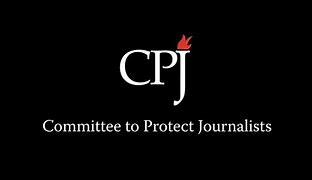At least 56 journalists assaulted and detained by security forces and unidentified citizens during protests – even though many had on vests that identified them as press.
The Committee to Protect Journalists (CPJ) has strongly condemned the recent attacks – including physical assaults, intimidation and detention – on at least 56 journalists in Nigeria.
The journalists – including nine from Radio Ndarason Internationale (RNI) in Borno State – were attacked, harassed and/or detained by security forces and unidentified citizens while covering the #EndBadGovernance demonstrations across the country.
The CPJ is demanding accountability from the Nigerian authorities.
Nigeria witnessed a surge in attacks on journalists covering the demonstrations during the 10-day nationwide “hunger protest” from August 1 to 10.
One journalist, Yakubu Mohammed of the Premium Times, recounted his harrowing experience while reporting on the cost-of-living protests in Abuja.
He said one officer seized his phone and three others hit him before he was thrown into a police van.
“A menacing officer in a bulletproof vest and helmet came for me. Three other officers would later join him — all pounced on me with a ferocity that left me reeling.”
Mohammed said while one officer wrenched his right hand and seized his phone, the three others hit him with their weapons. He received a head injury and his right shoulder was twisted and hurt.
He described his assailants as “monsters”.
“They intentionally came for me, fully aware that I am a journalist who caught them on camera harassing protesters.”
Despite wearing a “press vest” and showing his identification card, Mohammed said he was targeted by the police.
“In the blink of an eye, I went from being a hunter of a story to become the story,” he said after his assault.
On August 1, at least 10 armed police officers stormed the office of Radio Ndarason Internationale (RNI) in northern Borno State, detaining nine members of staff for five hours.
The police accused the staff of publishing “fake news” about the demonstrations.
David Smith, the project director of RNI, told the CPJ that the police action was a direct result of the outlet’s coverage of the protests.
The detained staff were held for five hours, highlighting the risks faced by journalists in the region.
The CPJ said it strongly condemned the attacks, adding that it had documented many incidents of violence perpetrated by police and unidentified civilians during the protests.
It said it was concerned about the failure of Nigerian authorities to prioritise journalists’ safety and hold the perpetrators accountable.
“This creates a culture of impunity that would likely embolden perpetrators to carry out further attacks on the press,” the CPJ said.
The incidents also sparked fears of a broader crackdown on press freedom in the country, where journalists play a crucial role in holding those in power accountable.
The attacks not only harmed individual journalists but also undermined the ability of the media to report on critical issues, including corruption, governance and human rights.
The CPJ said the safety of journalists remained a pressing concern in Nigeria and urged the government to take immediate action to protect journalists, investigate these incidents and hold those responsible accountable.
“Documentation of the incidents, based on interviews with those affected, local media reports, and verified videos and photos, were emblematic of the dangers faced by reporters in many African countries during protests – and the failure of authorities to prioritise journalists’ safety and end impunity for crimes against journalists,” the CPJ said.
“All but one of the journalists – a reporter for government-owned Radio Nigeria – worked for privately owned media outlets.”
Some of the attacks included:
On July 31, News Central TV journalists were stopped and questioned by police officers. They were forced to pause reporting on the planned protests at the Lekki toll gate in western Lagos State.
On August 1, police arrested two photojournalists – from the Daily Independent and Punch – in Abuja.
Also in Abuja, police officers threw tear gas cannisters at three journalists from News Central TV, The Cable and the People’s Gazette. Two of the journalists were hit in the legs with the cannisters.
In northern Kano city, unidentified attackers wielding machetes and sticks smashed the windows of a Channels Television-branded bus carrying 11 journalists and a car carrying two journalists.
In southern Delta State, at least 10 unidentified assailants attacked three journalists from The Guardian, Punch, The Pointer, and an investigative reporter whose cellphone was snatched.
On August 3, masked security forces fired bullets and tear gas in the direction of 18 journalists who were covering the protests at the national stadium in Abuja. Several of the journalists were wearing press vests.
A journalist’s leg was dislocated and another cut his knees and broke his phone as they were fleeing.
In Abuja’s Wuse neighbourhood, unidentified men robbed the political editor of the government-owned Radio Nigeria broadcaster. He and his driver were held at knifepoint.
On August 6, unidentified men carrying sticks attacked four journalists from News Central TV.
On August 16, Abuja police spokesperson Josephine Adeh denied any attacks were carried out on the press by police and asked for evidence. She also accused CPJ of harassment.
Police spokespersons Bright Edafe of Delta State and Haruna Abdullahi of Kano State told CPJ that their officers had not received any complaints about attacks on the press.
Lagos State police spokesperson Benjamin Hundeyin referred CPJ to the state’s Complaint Response Unit. The person who answered the phone refused to identify themselves and said they had no information about attacks on journalists. Subsequent calls and messages went unanswered.
The CPJ made repeated calls to the Borno State Commissioner for information, Usmin Tar. Calls and messages were unanswered.
Shettima Lawan Monguno









